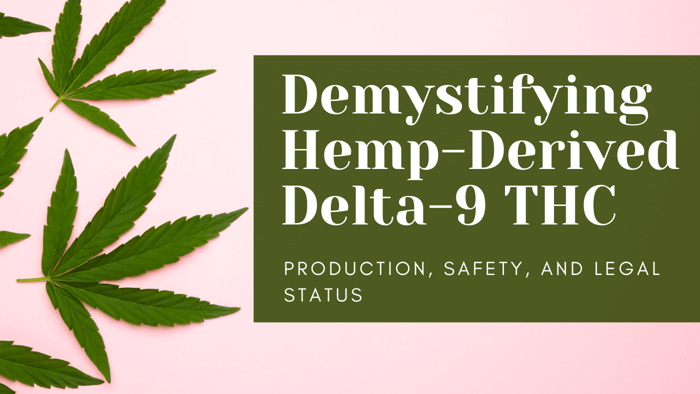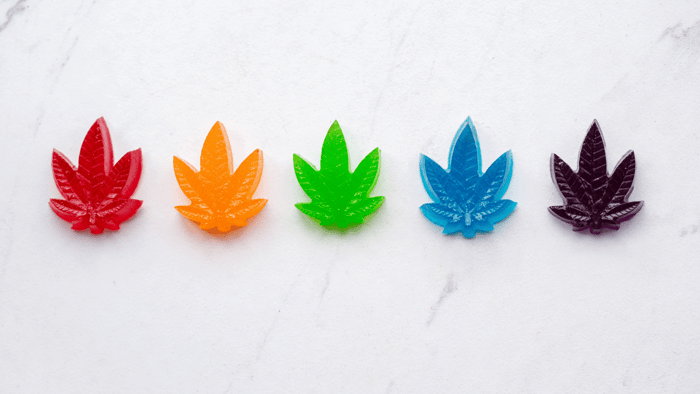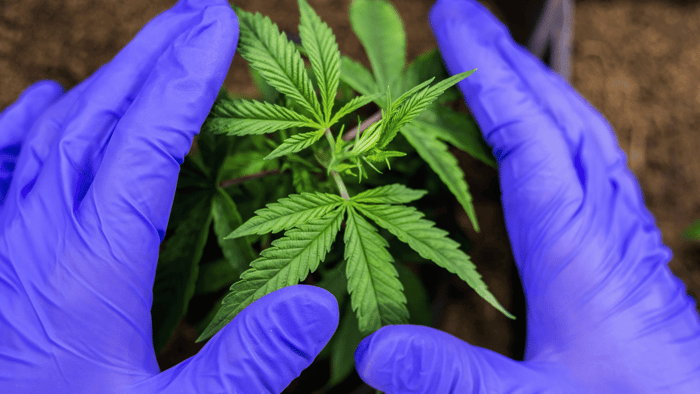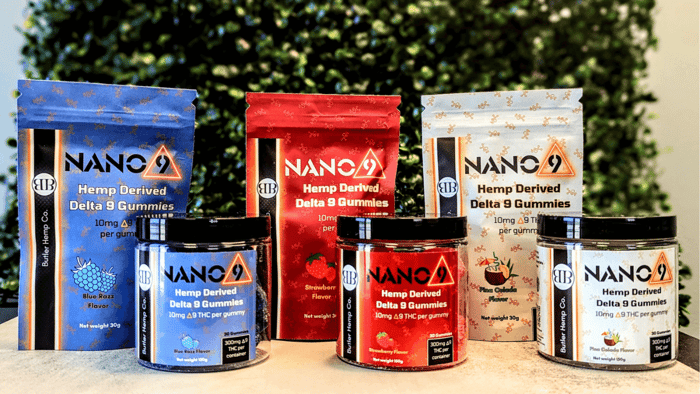Recently, the cannabis industry has been abuzz with enthusiasm and innovative concepts. Have you encountered Delta-9 THC? This renowned psychoactive element in marijuana is also present in hemp, and more and more cannabis fans are turning to this legal alternative to marijuana to manage pain, optimize sleep, and relax after a stressful day. Explore our blog to gain insights into hemp-derived Delta-9 THC, its secure production methods, and its compliance with the legal framework outlined in the U.S. Farm Bill.
Understanding Delta-9 THC
THC, commonly known as the primary psychoactive compound in the cannabis plant, induces the euphoric sensation often associated with cannabis use. While marijuana boasts substantial levels of Delta-9 THC, hemp typically contains notably lower concentrations of this compound.
Hemp, recognized botanically as Cannabis sativa L., has historically served in the production of textiles, paper, and food items, adhering to Delta-9 THC content limitations of 0.3% or lower. However, recent advancements in cultivation and extraction methodologies have facilitated the emergence of hemp-derived Delta-9 THC. This Federally legal alternative has become popular with consumers who live in states that have yet to enact or pass any legislation legalizing marijuana for use medicinally or recreationally, and its popularity is continuing to rise.
The Safe Production of Hemp-Derived Delta-9 THC
The safe production of hemp-derived Delta-9 THC relies on precise cultivation and extraction processes. Let's explore these processes in detail:
1. **Cultivation**: The journey begins with the cultivation of high-CBD, low-THC hemp plants. These plants are specially bred to have a low Delta-9 THC content while containing high levels of other beneficial cannabinoids, such as CBD (cannabidiol). Rigorous testing ensures that the plants remain compliant with the legal limit of 0.3% Delta-9 THC.
2. **Harvesting**: Hemp plants are harvested at their peak, typically when the CBD content is highest. Proper timing and care are essential to preserve the cannabinoid profile and minimize the risk of THC conversion.
3. **Extraction**: The extracted oil contains a mixture of cannabinoids, including CBD and Delta-9 THC. Several extraction methods, such as CO2 and ethanol extraction, are used to separate and isolate these compounds. At Butler, we use CO2 solventless extraction, as it tends to yield purer and more potent oil, which results in a more effective final product. The extracted oil then undergoes further refinement to purify the Delta-9 THC.
4. **Testing and Compliance**: Rigorous testing is conducted at multiple stages to ensure the product complies with the legal Delta-9 THC limit of 0.3%. Third-party testing labs play a crucial role in providing unbiased verification of the product's cannabinoid profile.
5. **Quality Control**: Stringent quality control measures are applied to guarantee the safety and purity of the final product. This includes checks for contaminants and solvents through testing, as well as accurate labeling.
The Legal Framework: U.S. Farm Bill
The legal status of hemp-derived Delta-9 THC under the U.S. Farm Bill, also known as the Agricultural Improvement Act of 2018, encompasses several significant points:
To start, the bill defines hemp as Cannabis sativa L. containing a maximum of 0.3% Delta-9 THC, establishing a clear threshold for THC content distinguishing it from marijuana.
Prior to the enactment of this bill, hemp fell under the restrictive Schedule I controlled substance category. However, the Farm Bill reclassified hemp, allowing for its legal cultivation, possession, and sale, including its THC derivatives. States are authorized to oversee hemp production, managing various aspects from cultivation to the sale of hemp-derived products. Their role involves ensuring compliance with the 0.3% Delta-9 THC limit. The U.S. Department of Agriculture (USDA) contributes by establishing regulations to maintain safe and lawful hemp production practices.
Central to this bill is the emphasis on precise testing. Products exceeding the 0.3% Delta-9 THC limit are deemed illegal and subject to regulatory action. Additionally, the Farm Bill permits the interstate transportation and commerce of hemp and its derivatives, fostering industry growth while adhering to regulatory provisions. Finally, the bill encourages research and development initiatives within the hemp industry, promoting exploration and innovation.
Conclusion
Hemp-derived Delta-9 THC represents an intriguing blend of innovation, regulatory measures, and scientific advancements within the cannabis realm. Most excitingly, it provides cannabis users in non-legal states with the opportunity to access its potent therapeutic benefits since it's legal under the Farm Bill. The cultivation and distribution of this compound strictly adhere to the 0.3% Delta-9 THC limit outlined in the U.S. Farm Bill, ensuring compliance and responsible practices in the industry.
Staying updated on the latest regulations and shifts in the industry is crucial. It ensures our responsible and legal use of hemp-derived Delta-9 THC. When grown, extracted, and managed in line with the guidelines of the Farm Bill, this innovative product introduces exciting possibilities for enhancing people's health and well-being. If you are looking to try a consciously made hemp-derived Delta 9 that can help mitigate pain, quell anxiety, and offer unrivaled relaxation benefits, check out our Nano 9 Gummies. They're fast-acting, made in a GMP-certified facility, and vegan and gluten-free. They're the perfect way to unwind after a stressful day, and have easily become one of our best-selling products in a super short amount of time!
$10.00
Looking for something that will help you achieve ultimate relaxation and a calming balance? Look no further than these tasty vegan and gluten free gummies that are packed with 10mg of legally compliant hemp-derived Delta 9 THC. Each piece is individually… read moreNano 9 Hemp-Derived Delta 9 Gummies 6 Count





